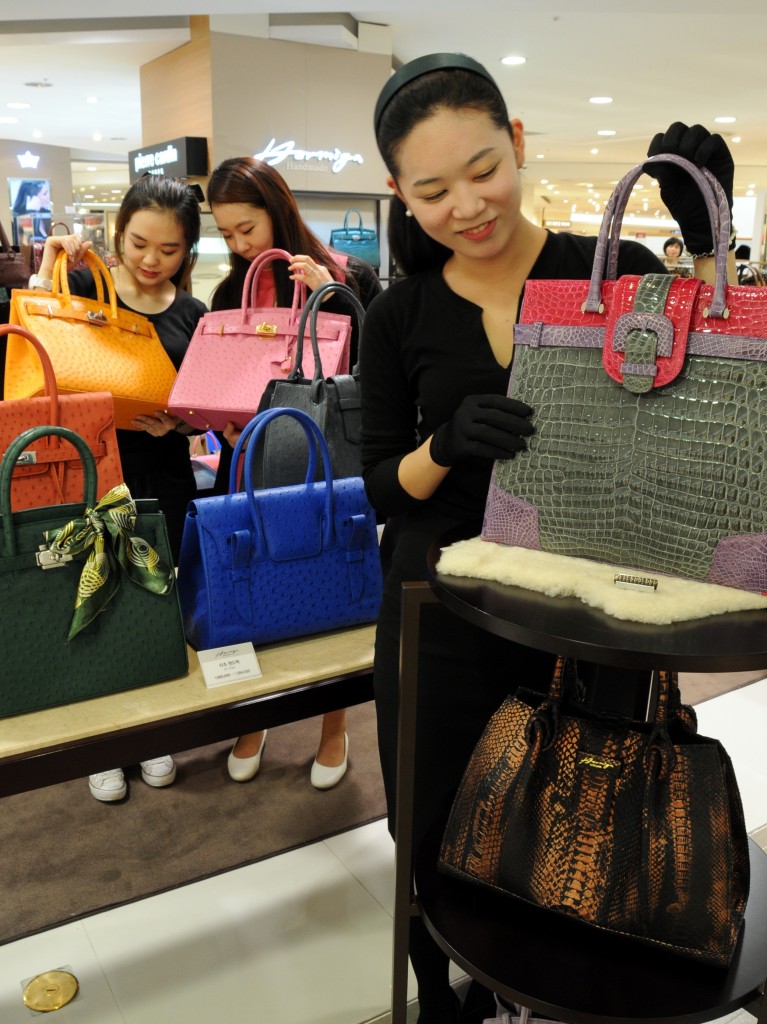- California Assembly OKs highest minimum wage in nation
- S. Korea unveils first graphic cigarette warnings
- US joins with South Korea, Japan in bid to deter North Korea
- LPGA golfer Chun In-gee finally back in action
- S. Korea won’t be top seed in final World Cup qualification round
- US men’s soccer misses 2nd straight Olympics
- US back on track in qualifying with 4-0 win over Guatemala
- High-intensity workout injuries spawn cottage industry
- CDC expands range of Zika mosquitoes into parts of Northeast
- Who knew? ‘The Walking Dead’ is helping families connect
Retail prices found to be 200-800 percent higher than import prices in S. Korea

The retail prices of imported products were found to be excessively high compared with the import price. (NEWSis)
By Choi Kyong-ae
The retail prices of imported products are excessively high compared with the import price, the Korea Customs Service (KCS) said on Friday.
Retail prices were found to be 200-800 percent higher than the import prices.
KCS surveyed the differences between 15 items, including swimming suits, perfume, leather wallets, sunglasses, beer and watches.
Other items included leather handbags, leather belts, sleeping bags, face powders, women’s denim trousers, hair dryers, digital cameras, chocolates and dog snacks.
Among them, women’s swimming suits topped the price gap, based on customs data from May to July.
In the January-September period, the number of imported female swimming suits jumped 8.3 percent from a year earlier. The import prices ranged from 1,278 won ($1) to 374,113 won ($336) over the three months.
One swimming suit was imported for 3,100 won but carried a price tag of 55,000 won, which means Korean consumers were asked to pay 17 times the import price.
The KCS has provided the price-gap reports since 2013 to help promote consumer rights and help people to compare imported and home-grown product prices. Perfume imports jumped 14 percent over the nine months, with imported prices ranging from 209 won to 50,985 won per 50ml bottle. The average selling price reached 7.98 times the imported price.
Meanwhile, parallel imports were shipped at higher prices than regular imported products, but were sold at lower prices.
“That’s because the prices of regular imported products were higher than those of parallel imports due to marketing and other costs,” KCS said.
A parallel import is a non-counterfeit product imported from without the intellectual property owner’s approval. Parallel imports are often referred to as grey products, and are implicated in issues of international trade, and intellectual property












![일본 사도광산 [서경덕 교수 제공. 재판매 및 DB 금지]](http://www.koreatimesus.com/wp-content/uploads/2024/07/PYH2024072610800050400_P4-copy-120x134.jpg)


